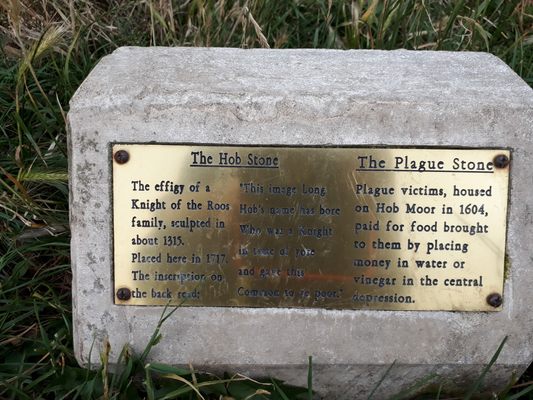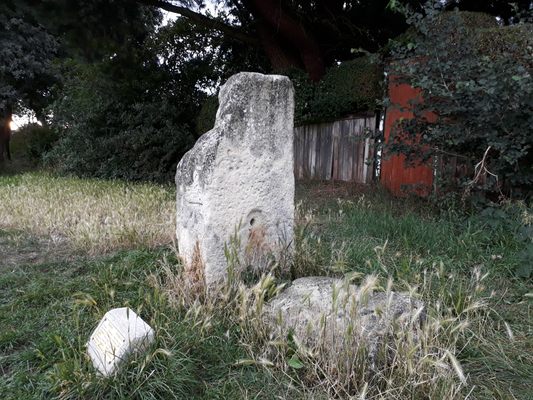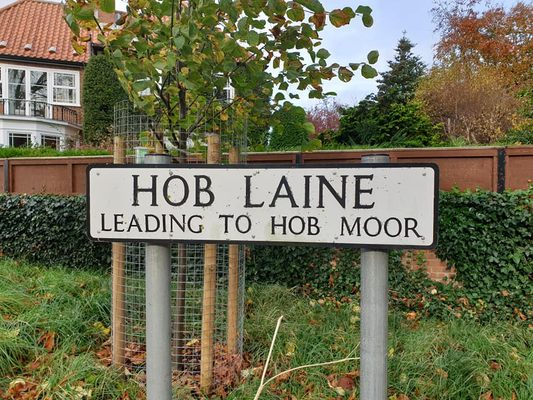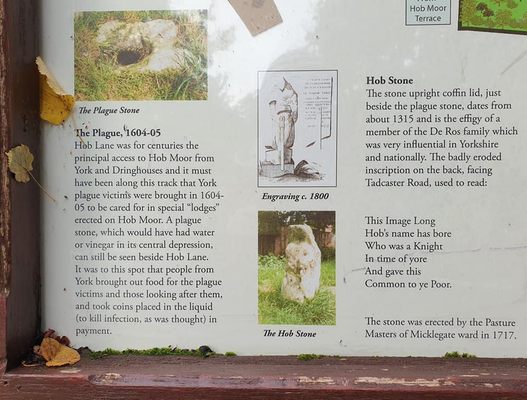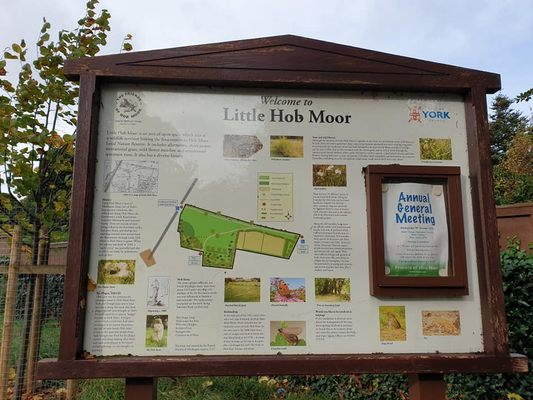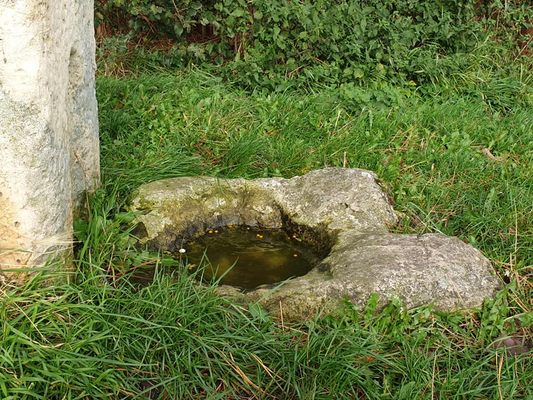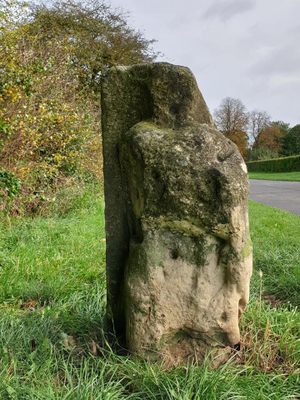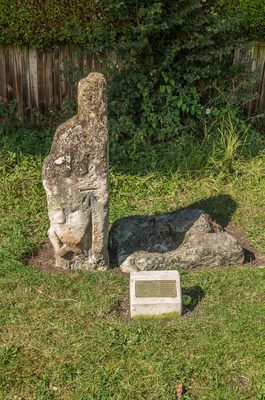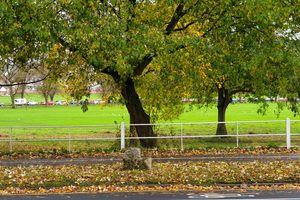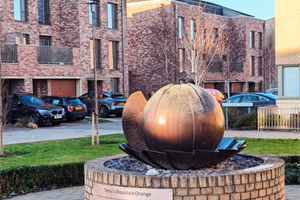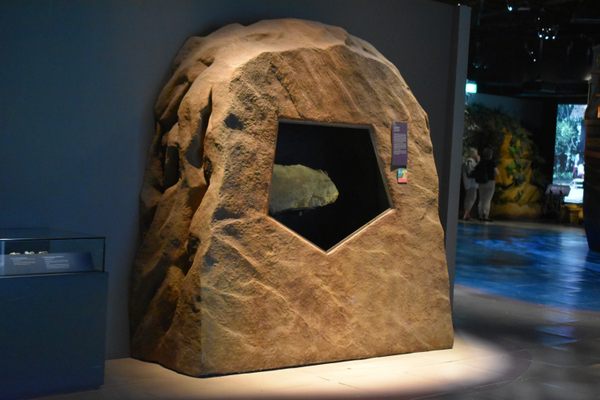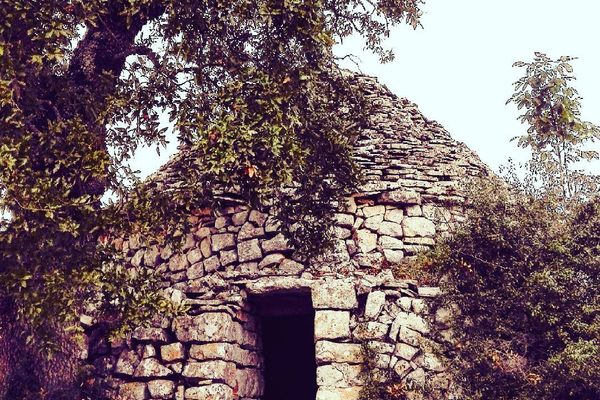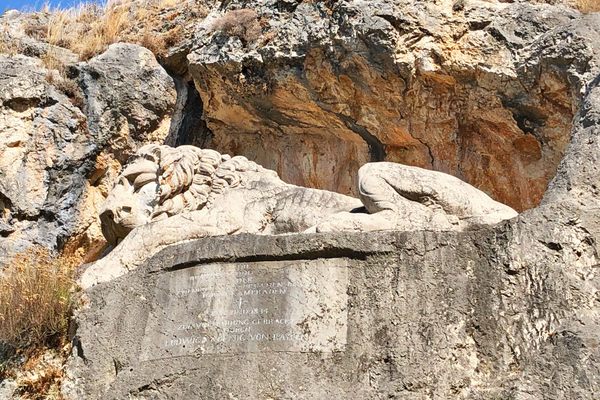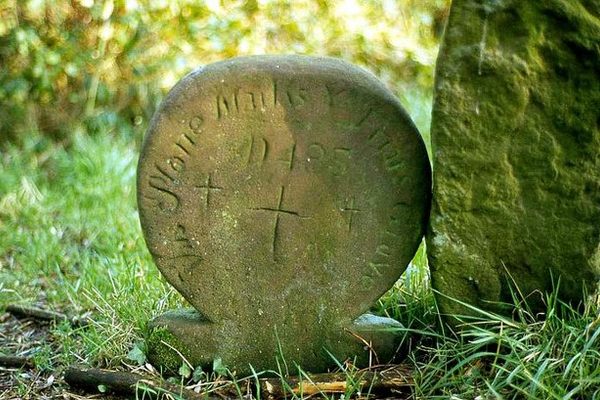About
When the plague hit York in 1604, infected citizens were forced to leave the city. Many moved to wooden lodges on Hob Moor. This large, marshy tract of land is to the southwest of the city’s outskirts, near the modern racecourse and opposite the Tyburn.
Friends and relatives still visited the infected but wisely kept their distance. Next to the modern path on Little Hob Moor is a flat stone with a dipped bowl in the middle. Visitors would leave food and supplies for the sick on the flat stone, and take payment in the form of coins left in the bowl. The bowl was also filled with vinegar or water.
Centuries before our modern understanding of disease control and transmission, people commonly believed the plague was passed through bad smells: dousing the coins in water or strong-smelling vinegar would remove the odor and prevent passing the infection.
The taller Hob Stone arrived a century later. This stone was originally an effigy of a knight, probably placed over his tomb, and it's unclear how it came to be moved. The sculpture is very eroded today, but visitors can still make out his decorated shield. It's also unclear who exactly this effigy represents. According to the nearby plaque, he was a member of the Yorkshire de Ros family, and according to the 1717 inscription on the back,
“This image long Hob’s name has bore/who was a knight in time of yore/and gave this common to ye poor.”
“Hob” was a familiar form for “Rob” or “Robert,” perhaps giving us a clue to the knight’s name. Hob is also a traditional name for the devil and Robin Goodfellow, the trickster, half-fairy who traditionally haunted marshes such as these.
Related Tags
Know Before You Go
The Hob Stone and Plague Stone are located about a mile from York’s walls, near the racecourse. Turn right off Tadcaster Road at the Little Hob Moor entrance and you’ll find them on the right beside the main path.
Published
August 12, 2020


